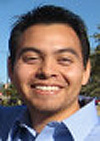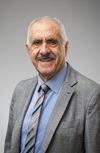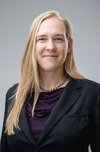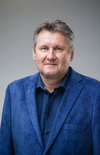Undergraduate Research Opportunities
Research is an important component of the undergraduate physics experience. It provides exposure to the way that physics is actually done in real life and can assist students in deciding whether or not to pursue graduate studies in physics. A semester of research in physics or astronomy (or in a related field, approved by the Director of Undergraduate Studies) is a requirement for graduation (see major requirements), and undergraduate research has become a major factor in admissions decisions by Ph.D. programs.
So how should you begin? Take a look at the research areas of our faculty members, and think about which of these areas interest you the most. Do you want to do an experimental project? A theory project? A computational project?
The next step is to contact faculty members in the department to see if they are able to supervise a project with you. We provide here a list of faculty in the department who have supervised or are interested in supervising undergraduate research. Not all of these faculty will be available to supervise you at any given time. Some may be temporarily oversubscribed with undergraduate projects, while others may be on sabbatical or simply not working on a suitable project at the moment. Furthermore, you should not limit yourself to the faculty members listed here. There may be other members of the department who would be able to provide a suitable project. Projects in related fields, such as engineering, computer science, or mathematics, can also satisfy the physics graduation requirements if there is sufficient overlap with physics or astronomy. As always, feel free to consult with the Director of Undergraduate Studies with any questions.
| Type of Research | Researh Topic(s) | Helpful skills or Background | Faculty |
|---|---|---|---|
| Experimental/computing | Collider physics, data analysis, statistical tools | Python or C++ are not strictly required but would be very helpful |  |
| Experimental, theoretical, computational, and combination of the three | High-energy particle physics, collider phenomenology, particle detector R&D, dark matter, Higgs boson, probing theories/particles beyond the Standard Model (grand unification, fifth force, supergravity, supersymmetry, extra dimensions, etc.), machine learning | I will teach students the necessary skills. |  |
| Depending on interests, experimental, theoretical or computational | Harmonic generation in solids, insulator-metal transitions, interactions of light and matter at ultrafast time scales | Introductory physics course/laboratory |  |
| Experimental and computational projects | Biophysics, cell mechanics, laser ablation, wound responses, confocal live-cell imaging, machine learning for image processing, microfluidics, toxicology, organ-on-chip devices | Experience with python or Mathematica would be helpful, but not required. |  |
| Experimental, computational and phenomenology | High energy nuclear physics, particle physics, CERN, machine learning | Some familiarity with C++ or Python is necessary to start |  |
| Computational | Properties of different types of materials | A course in quantum mechanics is helpful |  |
| Theoretical, computational | High-energy nuclear physics, heavy-ion collisions, proton collisions, relativistic fluid dynamics, data science and machine learning, Bayesian inference, perturbative field theory | For theoretical projects, strong background in calculus and differential equations; For computational projects, skills in Python, C/C++, familiarity with Linux; for certain projects, knowledge of statistics or machine learning skills are a plus. |  |
| Observational/experimental astrophysics | Quasars, supermassive black hole binaries, big data | Undergraduate coursework in astronomy, computer programming (especially in Python) |  |
| Theoretical / Computational Astrophysics | Gravitational waves, black holes, neutron stars, big data | Experience with mathematical methods for the physical sciences will be very helpful. A basic knowledge of statistics and skills in Python programming (using numpy, scipy, etc). |  |
| Theoretical and Computational | Cavity Quantum Electrodynamics, Coupled Maxwell-Quantum equations, Interaction of laser and matter, Time-dependent quantum simulations | We will teach students the necessary skills. |  |